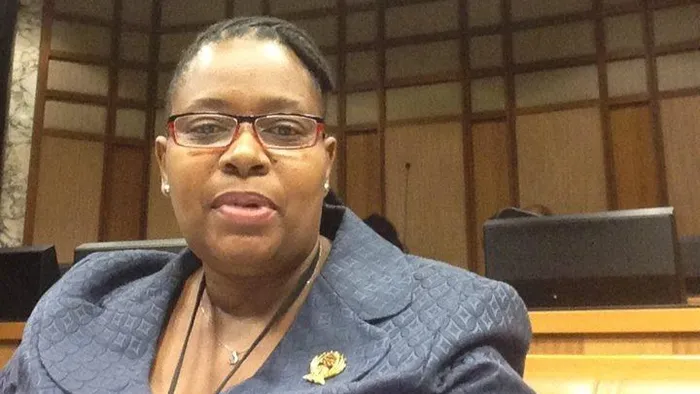ANC's Lungile Mnganga-Gcabashe remembered as a beacon of women's rights and leadership

Lungi Mnganga-Gcabashe died at her home in Westville, at the weekend.
Image: Facebook
THE African National Congress (ANC) has announced funeral arrangements for the deputy president of its Women's League (ANCWL), Lungile Mnganga-Gcabashe, 64, who died on Saturday.
Mnganga-Gcabashe, former wife of ANC activist Sipho Gcabashe and a member of the ANC's national executive committee (NEC), was born in KwaMashu, north of Durban, and will be buried on Saturday. Her funeral service will be at the Inkosi Albert Luthuli International Convention Centre.
The national and provincial delegation of the ANC, led by ANC Secretary General Fikile Mbalula, visited the Gcabashe family at their Westville home to convey their condolences on Monday.
Mnganga-Gcabashe was a member of the national assembly and the chairperson of the portfolio committee on tourism. The national spokesperson of the ANC, Mahlengi Bhengu-Motsiri, said the party will hold a series of memorial services for Mnganga-Gcabashe leading up to her final sendoff.
"Her leadership was marked by quiet strength, unwavering discipline, and a deep belief in collective leadership. Her passing has left a profound void in the ranks of the ANC and among the millions whose lives she touched through her work. Comrade Lungi leaves behind a legacy of principled activism, humility, and ensuring service she carried in every task and responsibility given to her, from the townships to the national platform," said Bhengu-Motsiri.
A funeral committee led by Mike Mabuyakhulu has been established, and it will oversee all arrangements and coordination with stakeholders.
“Hon. Mnganga-Gcabashe’s contribution to public life, particularly in championing the rights and upliftment of women, is a legacy that will endure far beyond her time with us. As a woman of conviction, she stood firm in her beliefs, led with integrity, and carried herself with the kind of dignity and grace that inspired those around her.
“As IFP Women’s Brigade, we honour her memory not only as a political peer but as a sister in the shared struggle for a more equal and just South Africa,” said the IFP Women's Brigade in a statement.
Mnganga-Gcabashe began her activism in KwaMashu as a United Democratic Front (UDF) member, where she was selected to be in a peace committee which was tasked with bringing peace to the K and J sections, which were under severe attack from the nearby Lindelani, a township that was a stronghold of the IFP at the time.
This peace committee also found itself at the crosshairs of AmaSinyora (a group that was terrorising community members allegedly armed by the apartheid police). When the new informal settlement of Siyanda mushroomed it also brought new challenges to the work Mnganga-Gcabashe and other peace committee members were doing, as just like Lindelani, it became populated with IFP supporters, which escalated the violence between the IFP and UDF.
After the unbanning of the ANC, Mnganga-Gcabashe became active in its structures. Her focus was mainly on the recruitment of women for the ANC and its Women's League. The ANC structures were not strong then, but over time she and many others were persuaded to leave formal employment and join the ANC full-time. In 1997, she resigned from the structures and later joined the local authority in Pinetown in the development section of the Inner West Local Council, responsible for housing.
From there, she joined the provincial legislature and returned to politics as a member of the Regional Executive Committee of the ANCWL, where she became acting deputy secretary and secretary. In 2012, she was elected to the ANC provincial executive committee and would later become an ANC NEC member.
She is survived by her daughter Siphelele, her mother, and six siblings.
Related Topics: